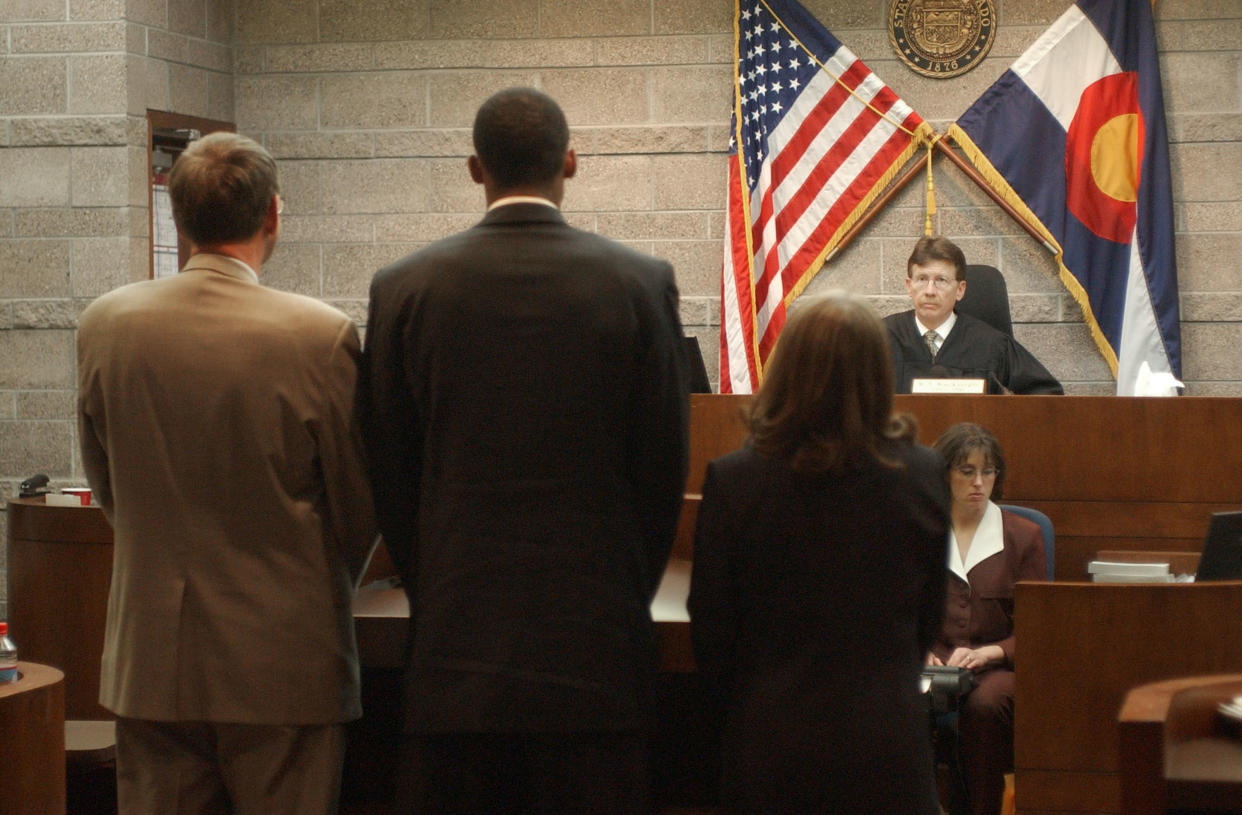Should Kobe Bryant’s 2003 Colorado trial have a prominent role in his legacy?

“The 360” shows you diverse perspectives on the day’s top stories.
What’s happening
Kobe Bryant, a basketball icon and Laker legend, died on Jan. 26 in a helicopter crash. Bryant’s legacy was vast and impressive: five-time NBA champion, NBA MVP, gold medalist, Oscar winner. He was a mentor and father figure not just to a generation of basketball players, but to a younger generation of girls — including his daughter, Gianna, who also died in the accident — looking to make their impact on the game of basketball. Bryant’s reach and influence were immeasurable and yet still growing, far beyond the basketball court, at the time of his death.
However, Bryant also had a dark chapter in his past. In 2003, he was accused of sexual assault by a 19-year-old hotel employee in Vail, Colorado. Bryant — 24 and married — insisted the sex was consensual, though he did concede the woman did not verbally consent. Eagle County prosecutors dropped the case when the accuser ultimately decided not to testify. The accuser did file a civil lawsuit against Bryant, which resulted in an undisclosed settlement. The Los Angeles Times estimated at the time the settlement could have exceeded $2.5 million.
“Although I truly believe this encounter between us was consensual, I recognize now that she did not and does not view this incident the same way I did,” Bryant said in a statement after the criminal case was dismissed. “After months of reviewing discovery, listening to her attorney, and even her testimony in person, I now understand how she feels that she did not consent to this encounter.”
Now, after a month of tributes and memorials, the question still remains: How does one reconcile the greatness of Kobe on the court with the dark stain of 2003 off it?
Why there’s debate
Whenever a notable public figure dies, there’s an understandable drive to exalt the person’s positive qualities while minimizing their negative ones. But there’s also a need to recognize the person in full: both their triumphs and their failings. The question then becomes: Which carries more weight, good deeds or cruel ones?
Had Colorado happened in, say, 2018 during the #MeToo movement rather than 2003, Bryant almost surely wouldn’t have fared as well. The Lakers, who actually allowed Bryant to play throughout the court proceedings, would have been under immense pressure to cut him loose, regardless of on-court consequences. Any appearance of victim-shaming would have been met with substantial backlash. In the days — indeed, the minutes — after Bryant’s death, many comments on social media referenced Bryant’s past, with some making it clear that they believed nothing he’d done since then redeemed him from what he did in Colorado.
What’s next
Bryant’s legacy is secure; the outpouring of love from the city of Los Angeles has been remarkable in its breadth and depth. Monday’s “Celebration of Life” focused largely on his efforts in retirement to support and build the game of women’s basketball. But it remains to be seen how much of an impact Colorado will have on his legacy. Later in his life, Bryant never did address directly what he’d done in Colorado, never took direct responsibility. Perhaps he would have in future years, perhaps not.
Perspectives
“You have to tell the picture in totality. We’re not making Kobe out to be no hero. We’re celebrating his basketball excellence. We understand what happened in Colorado. That’s fair, but two things can be true … Kobe Bryant is one of the greatest basketball players ever. And he had a flaw that we all know about.” —Charles Barkley
“Had Bryant owned this part of his history, had he taken his experience and used it to teach others about respecting women, or spoke publicly of how he explained what happened in Colorado to his daughters, the impact would have been immense. Bryant’s power and influence in our society was so vast that he no doubt would have changed the way our country looks at sexual abuse. But he didn’t. In fact, he went out of his way to bury that part of his history. So we are left with this flawed god, whose complicated legacy includes so much more than his five NBA titles, his fierce competitive nature or his bright and whimsical mind.” —Nancy Armour, USA Today
“The totality of anybody’s life is not sanitary. The totality of anybody’s life, especially one on the scale of his—such a visible person—influences a lot of people for the good and the bad. But that case did so much with regard to sexual assault. It impacted the way the entire society viewed it. It impacted whether victims reported it. It impacted the way the media reported it.” —Kathy Redmond Brown, founder, National Coalition Against Violent Athletes
“It's not complicated for me at all … I just never, have ever seen him being the kind of person that would do something to violate a woman or be aggressive in that way. That's just not the person that I know … I think that the media should be more respectful at this time. It's like if you had questions about it, you had many years to ask him that. I don't think it's something that we should keep hanging over his legacy.” —Lisa Leslie
“How dare you try to torch my homeboy’s reputation, punk [expletive]. Respect the family and back off, [expletive], before we come get you.” —Snoop Dogg, in a since-deleted Instagram post, to CBS’s Gayle King for asking Leslie a question about Bryant’s legacy. Snoop later apologized.
Is there a topic you’d like to see covered in “The 360”? Send your suggestions to the360@yahoonews.com.

 Yahoo Movies
Yahoo Movies 
